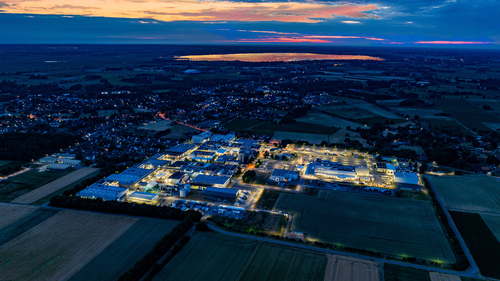BASF in Lemförde expands sustainable product portfolio
BASF completes the certification program International Sustainability and Carbon Certification (ISCC) PLUS at its production site in Lemförde, Germany to produce biomass-balanced thermoplastic polyurethanes. Also, the annual recertification according to REDcert was successfully completed for numerous thermoplastics and polyurethane systems. This allows BASF to expand its sustainable product portfolio and continue its commitment to supporting customers in achieving their sustainability goals.
Supporting customers with certified sustainable solutions
With the mass balance approach, BASF supports its customers in pursuing their sustainability goals. This approach allows for the replacement of fossil resources with renewable and recycled raw materials in the Verbund production setup of BASF and assigns them to the respective product. By replacing fossil raw materials with renewable resources, customers receive a product with a lower CO2 footprint. The formulation and quality of the corresponding end products remain unchanged. For example, Elastollan® 1185 A10 FCI, which is used for films or hoses in sensitive applications (food contact or medical engineering), can be offered as a product variant certified according to ISCC PLUS.
"With this drop-in solution, our customers receive a product with a reduced CO2 footprint compared to conventional materials, without requiring any technical changes on their part. Reducing the need of fossil resources and greenhouse gas emissions are highly relevant for today's producers and consumers," says Artur Pfeif, Product Management TPU at BASF Performance Materials Europe.
Global standards for correct biomass allocation
The certification according to ISCC PLUS covers the entire value chain and ensures that the certified share of fossil raw materials is replaced by renewable raw materials. This paves the way for BASF to offer mass balance certificates to its customers for specific products of thermoplastic polyurethanes. It is an internationally recognized certification scheme for mass balance methodology.
Also, the European standard REDcert ensures the correct allocation of renewable resources in BASF's value chain. REDcert and ISCC PLUS are sustainability certification schemes for the use of sustainable biomass as raw material in the chemical industry. Both certificates confirm that sustainable biomass has been correctly allocated as a raw material in the chemical production system and are awarded based on on-site audits by independent auditors.
When claiming sustainability of a sales product, traceability of renewable or recycled raw materials must be proven as part of the mass balance certification process. "With this important step, complete transparency regarding high sustainability requirements can be achieved across the entire value chain, also for our customers," summarizes Eileen Orlich, Sustainability Management at BASF Performance Materials Europe.
About BASF Performance Materials division
BASF’s Performance Materials division is at the forefront of the much-needed sustainability transformation in plastics. Our products are co-created with customers around the globe to bring innovations to major industry sectors such as transportation, consumer goods, industrial applications, and construction. Our R&D focuses on all stages of the plastics journey: Make, Use and Recycle. The MAKE phase is about improving how plastics are made, from product design to the choice of raw materials and the manufacturing process itself. The USE phase enhances plastics’ strengths such as light weight, robustness, and thermal resistance. At the end of the product lifecycle, the RECYCLE phase looks at how to close the loop to achieve a circular economy. In 2023, the Performance Materials division achieved global sales of €7.2 billion.
Categories
Chemical substances
Countries
Companies
Latest news
INEOS launches €250m investment supported by the French Government to secure the future of French industry at Lavera
The project marks the first phase of a long-term regeneration plan to reduce emissions, boost reliability, efficiency and competitiveness, with support of the French State.
Hycamite’s technology to decarbonize shipping awarded AiP by industry leader DNV
Kokkola Industrial Park →Hycamite’s proprietary Thermo-Catalytic Decomposition (TCD) technology offers a new approach to producing clean hydrogen by breaking down methane, the primary component of liquefied natural gas (LN...
Clariant catalysts will power the Ecoplanta: Europe's first waste-to-methanol plant
Chemmed Cluster Tarragona →Repsol is building Europe’s first plant to produce renewable methanol from urban waste The facility will use Enerkem gasification technology to produce 240 KTA of methanol Clariant will supply cata...
Lilly plans to build a new $3 billion facility to boost oral medicine manufacturing capacity in Europe for patients worldwide
Netherlands site will bring 500 manufacturing and 1,500 construction jobs while further strengthening Lilly's global supply chain

